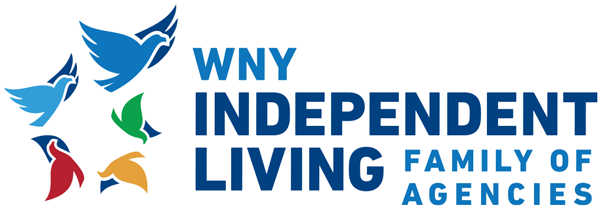Public Relations
Independent Perspective
Western New York Independent Living’s Weekly Podcast is designed to provide updates about agency and community service, programs, and events.
Recent Episodes
December 21, 2025
Mental Health at the Holidays with MHPC Director Kevin Smith
December 14, 2025
2026 Disability Pride Festival with WNYIL’s CCEO Tracy LeBlanc
To listen to additional episodes, visit the Independent Perspective podcast site.
Independent Perspective In-Depth
Learn about some of WNYIL’s programs and services in-depth.
Recent Episodes
We’re Here to Help You.
Do you have feedback, questions or concerns? Call 1-800-348-8399 or click the link below for assistance.
